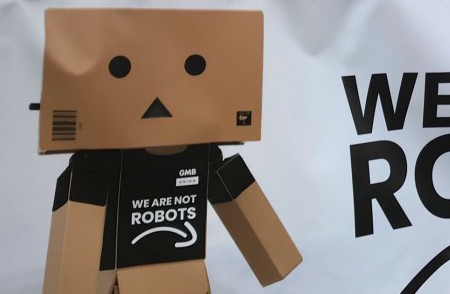Society as a whole is bearing the true cost of the company’s misbehavior.
Published in the November 2015 issue of the New Internationalist.
If Amazon.com executives had their way, they would no doubt have trained public attention on some of the upbeat news that has appeared in recent months: headlines such as ‘Amazon Passes Walmart as Biggest Retailer by Market Value’ or ‘Amazon Launches Full Operations in Mexico’.
Instead, the online superstore has been forced to contend with a damning exposé published in the New York Times. The article described the office culture at the company’s Seattle headquarters as an ‘experiment in how far it can push white-collar workers, redrawing the boundaries of what is acceptable’.
The Times reported that having a job at Amazon means 80-hour working weeks, fierce competition among co-workers, and punishingly critical performance reviews. Employees are ranked, and those at the bottom each year are eliminated. Some who had to care for sick family members or fell ill themselves told reporters that they quickly found themselves heading for the exit, driven out due to an insufficient focus on work.
And these are college-educated professionals who had secured well-paying jobs at the corporate office. In Amazon’s warehouses, wages are low and stock options – like unions – are nonexistent. The movement of workers is monitored electronically to ensure that they load trucks and pack boxes with unending haste. In one notorious incident in 2011, Amazon neglected to install air conditioning in a Pennsylvania warehouse, instead opting to park ambulances outside to treat workers who collapsed while laboring in 100-degree heat.
Following the most recent revelations, some have asked whether it’s finally ‘time to break up with Amazon’.
I can attest that doing so isn’t easy. For years I have managed to avoid setting foot inside Walmart, but a personal boycott of Amazon somehow seems far more difficult. If Amazon is an evil company, it is also devilishly convenient.
In the US, the online retailer does not merely dominate the book business. It has become a place where, as long as your laptop or smartphone is within reach, you can order anything from wireless stereo speakers to cinnamon dental floss to camouflage sleeping bags to… well, basically anything. And you can have the stuff delivered to your doorstep for free, usually before the cock crows twice.
The company is said to be working on using drones to deliver packages within 30 minutes of purchase. If it succeeds, its world domination will be complete.
Amazon is already well established in Britain and much of Europe. Besides Mexico, it is expanding its business in India and investing heavily in China.
The company has often advanced its prodigious expansion by using a position of market dominance to weaken and then buy up smaller rivals. It has attempted to outdo even Walmart in bullying suppliers into providing goods for less. This means that it’s not just Amazon’s own workers who are squeezed, but employees throughout the supply chain.
Also helpful in Amazon’s success has been a pricey lobbying operation, designed to ensure that its tax bill is low and that anti-monopoly laws in the US remain hopelessly obsolete.
The end result is that prices on the site are cheap for individual consumers, but society as a whole must bear the true cost of the company’s misbehavior.
In this context, ‘breaking up’ with Amazon might be the wrong way of thinking about it. What we need are not people individually choosing to sever their relations. We need collective action and public muscle.
European regulators have set a fine example by shutting down Amazon’s tax-avoidance schemes involving havens such as Luxembourg. To expand on this, we need to support warehouse workers’ drives to organize and demand that officials in the US bolster anti-trust regulations.
As it redefines the limits of acceptable corporate behavior, Amazon is conducting an experiment in how far it can push us all. We should take this as an opportunity to push back.
__________
Photo credit: GMBunion@Amazon/Twitter
